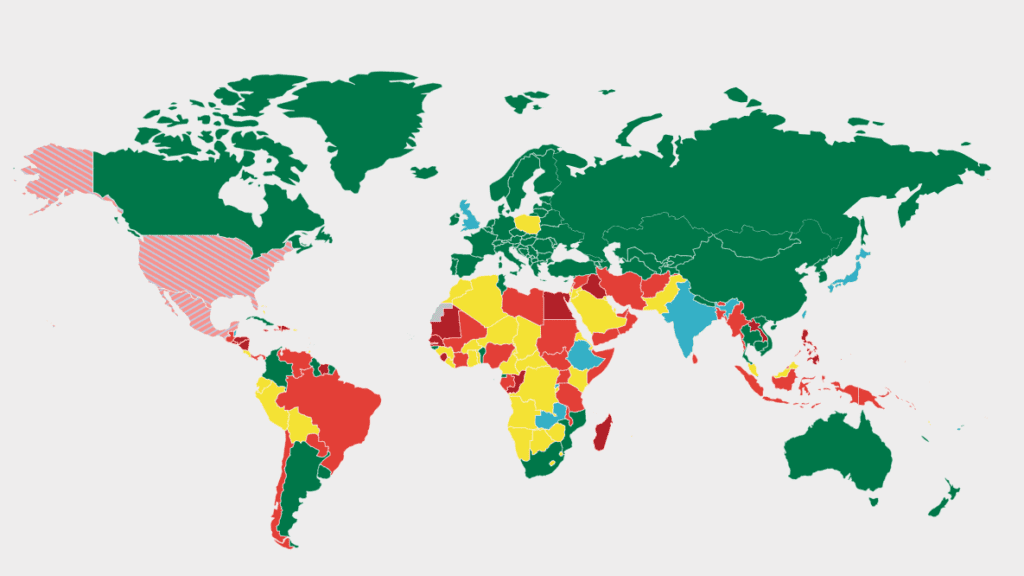
Abortion Decriminalization
Like other health services, abortion should be regulated based on health, well-being and human rights—not regulated under criminal laws.
Criminal abortion laws do not eliminate the need for abortion care—they instead drive many people to seek unsafe abortions. Worldwide, more than 39,000 women die each year from unsafe abortions, and millions more experience health complications. It is essential to eliminate criminal abortion laws to ensure that people in all countries can access safe and legal abortion services.
Decriminalizing abortion laws would remove abortion and the associated criminal sanctions from all penal laws, leaving abortion to be regulated like other health services. Canada is the only country that has taken this crucial step.
The resources below provide in-depth analysis of the legal and public health issues surrounding abortion decriminalization. Developed in partnership by the Guttmacher Institute and the Center for Reproductive Rights, they combine Guttmacher’s expertise in public health with the Center’s expertise in human rights law and are part of the organizations’ programs to improve sexual and reproductive health and rights around the world.
Explainer Video: Decriminalizing Abortion
To watch the video in Spanish, click here.
To watch the video in French, click here.
Primer: Decriminalization of Abortion—A Human Rights and Public Health Imperative
This primer demonstrates how decriminalization of abortion is an essential part of states’ human rights obligations and a key step in guaranteeing reproductive autonomy.
It also underscores the harmful effects of the continued criminalization of abortion in countries across the globe and features case studies from Nepal, Kenya and Poland.
Report: Realizing the Full Decriminalization of Abortion
This in-depth report integrates evidence from demographic, health and legal perspectives to present arguments for the liberalization and decriminalization of abortion laws. “Realizing the Full Decriminalization of Abortion: A Comprehensive Approach Through Public Health and International Human Rights Law” is co-authored by:
-
Alejandra Cardenas, Senior Director, Legal Strategies, Innovation, and Research, Center for Reproductive Rights
-
Susheela Singh, Distinguished Scholar and Vice President for Global Science and Policy, Guttmacher Institute
-
Margaret Harpin, Legal Advisor, Legal Strategies, Innovation, and Research, Center for Reproductive Rights
-
Sophia Sadinsky, Senior Global Policy Manager, Guttmacher Institute
Liberalization of abortion laws allows legal access to abortion under a broader set of circumstances and/or gestational limits but keeps abortion criminalized.
What’s the difference between liberalization and decriminalization?
Decriminalization of abortion laws removes abortion and its criminal penalties from all penal laws, leaving abortion to be regulated like other health services.
Learn more about abortion worldwide with these resources:
World’s Abortion Laws Map

Explore the Center’s World’s Abortion Laws Map and learn more about abortion laws and policies in countries across the globe.
Fact Sheet: Abortion Incidence Worldwide
-
“Unintended Pregnancy and Abortion Worldwide: Global and Regional Estimates of Unintended Pregnancy and Abortion,” Guttmacher Institute, March 2022
Policy Analysis: Mifepristone for Abortion in a Global Context
-
“Mifepristone for Abortion in a Global Context: Safe, Effective and Approved in Nearly 100 Countries,” Guttmacher Institute, July 2023



